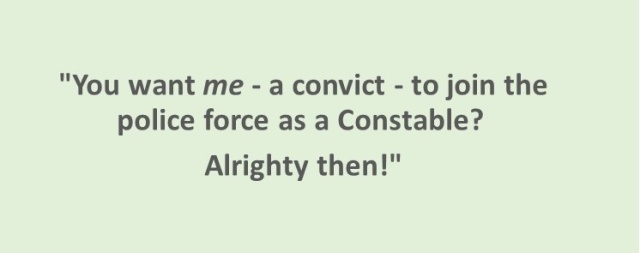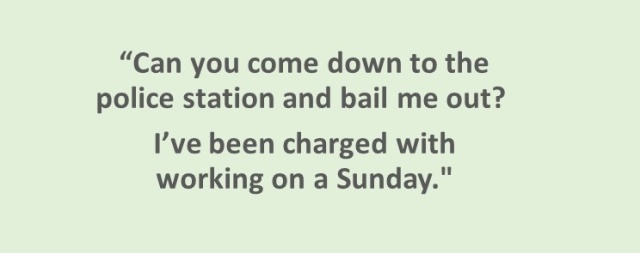When I first found out that in 1942, dairy farmers in New Zealand had to prove they owned 12 cows before they could buy a pair of gumboots, I couldn’t help but imagine a snippet of conversation from that time:
“Just two more cows and I’ll finally be able to buy a pair of wellies!”
Somewhere in NZ, someone’s great grandfather…um…Joe, was excitedly counting down the days until one of his cows gave birth, hoping it produced twins. “Not long now, Daisy!”
I’ll admit I may have laughed at the thought, but then remembered that during 1942 – along with rationing of food and other supplies – there was a rubber shortage. Tough times calling for tough measures! And while today all we have to do is save a few dollars and pop to the local shop, back then getting your hands on car tyres or other types of rubber was rare.
So then I felt bad for imaginary Joe. I hope he got his gumboots, and the farm was OK.
There are many examples of this type of thing though our history’s pages: the things our ancestors said that would no doubt seem a bit strange or out of place today, but were pretty reasonable at the time.
They still make me laugh at times (sorry), but they also help to tell the stories, highlight some of the challenges faced, and show just how much things have changed:
In the 1830s, a shortage on the police force led to ‘well behaved’ convicts being recruited as Constables. George Warren, who arrived to Van Diemen’s Land (Tasmania) in 1830, was one.
George was transported for burglary, and only a year later was serving on the ‘other side’ of the law.
Burglary. As in house breaking; for which he received a life sentence.
He was also of ‘bad conduct’ during transportation.
Yep, seems legit.
“Sorry, I can’t make it today. There’s a funeral this afternoon, and I’m pushing the coffin in wheelbarrow.”
I have no doubt that times were tough in 1905. Not everyone had access to transport, or could afford it.
Even, it seems, for a funeral.
So apparently a wheelbarrow it was for my 2x Great Grandfather. A journey of around 10 kms (6.2 miles) from the family home to Franklin Village Church.
“Kids I have some sad news. Your father died. There was no funeral or coffin, but it’s OK – his friends made sure to cover him with bark before they left.”
No coffin? No problem. In 1854 on the Bendigo Goldfields all you needed was a few mates, some sheets of bark, and you were sorted. And registering a death? Well that pesky formality just slowed things down when Gold Fever! had struck.
In this case, Daniel Wenn’s remains were found in 1921. The newspaper reported that “the deceased was buried in his clothes between two sheets of bark, no coffin being procurable.”
Apparently it wasn’t that uncommon at the time…but I think I prefer the wheelbarrow.
“I just don’t feel like a William.
I think George suits me better.”
What do you do if you just don’t want to be called William? Change your name of course! Sure you can do it today, but in 1834 there were no official records, or process. It just…happened. The ‘alias’ was quite common, and while William Tomlinson may have had good reason, tracking him down 200 years later is proving a bit…difficult.
There’s something to be said for our current day 100-point identity checks after all.
“Arrest that woman! She’s…exercising!”
Not from my family, but something I came across recently.
Did you know that women were not allowed to compete in the Olympic Games until 1908, and that even then it was only in archery? It was thought that they should not be allowed to perspire in public, and archery was pretty low-impact therefore more ‘ladylike’. Australia’s first female Olympians were Fanny Durack and Mina Wylie, who competed in 1912 in swimming (and won gold and silver).
And finally (and possibly my favourite so far):
Never mind the fact that grand uncle Alf was carrying a firearm in public; that’s not the point, silly.
The point is that it was a ‘fowl’ gun. For shooting birds.
On a Sunday!!
Carry a loaded gun if you must, wave it around if you need to.
Just don’t do it on a Sunday.
A fowl gun means you’re working, and that kind of stuff just gets you thrown into the slammer.
How times have changed, indeed.


Reblogged this on swebesue.
LikeLike
[…] For Things our Ancestors Said #1, click here. […]
LikeLike